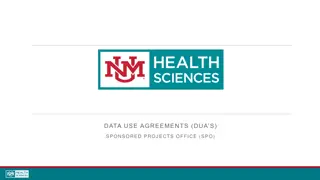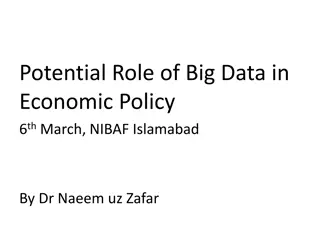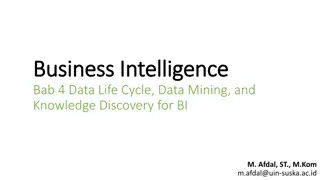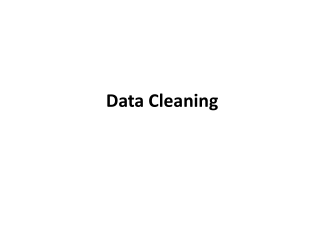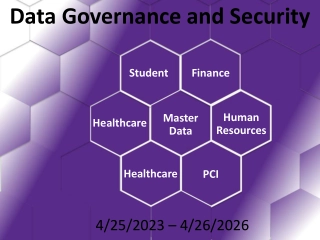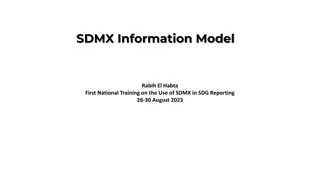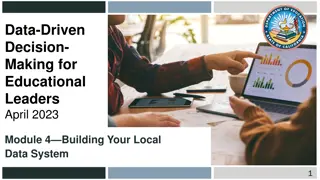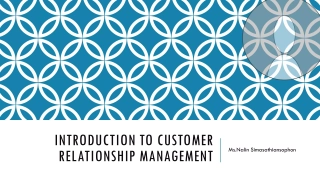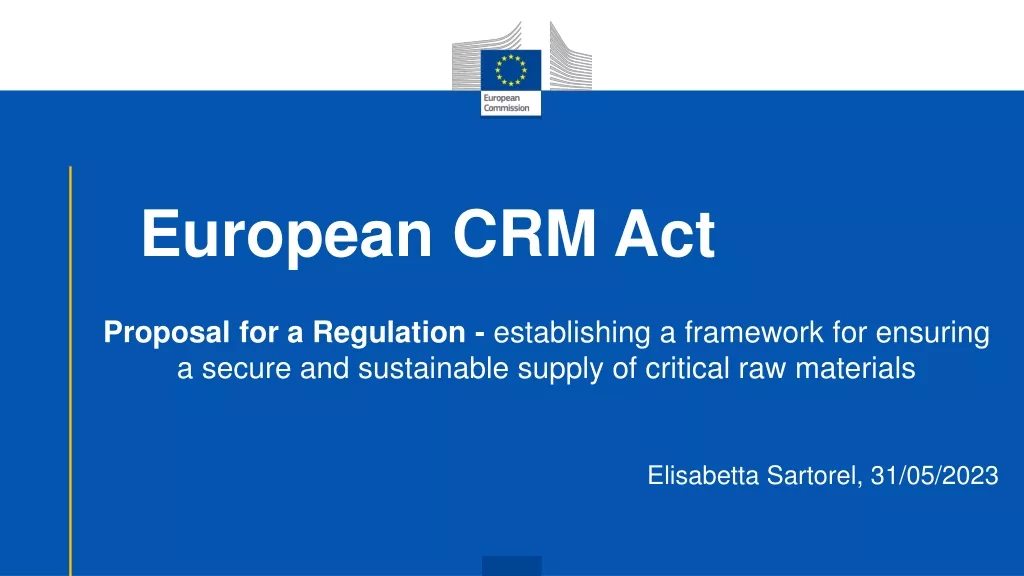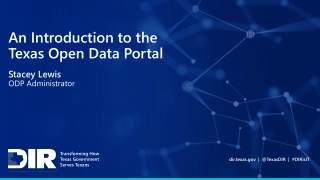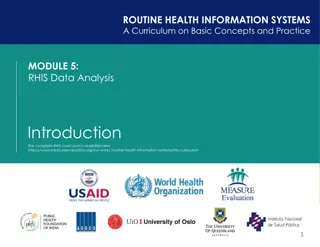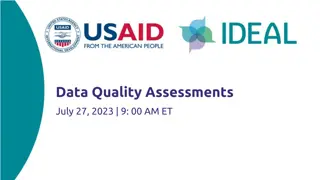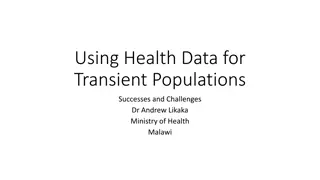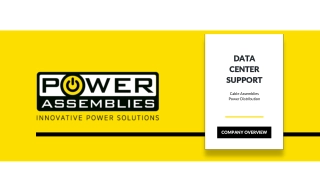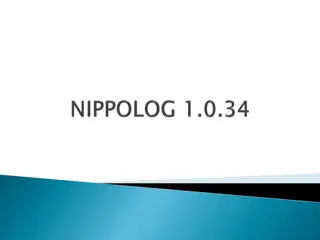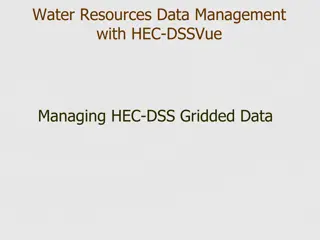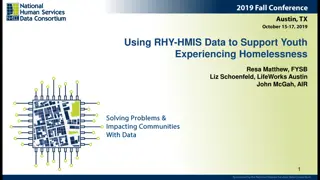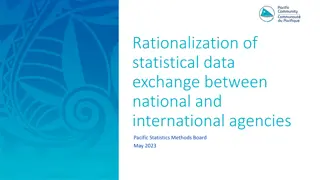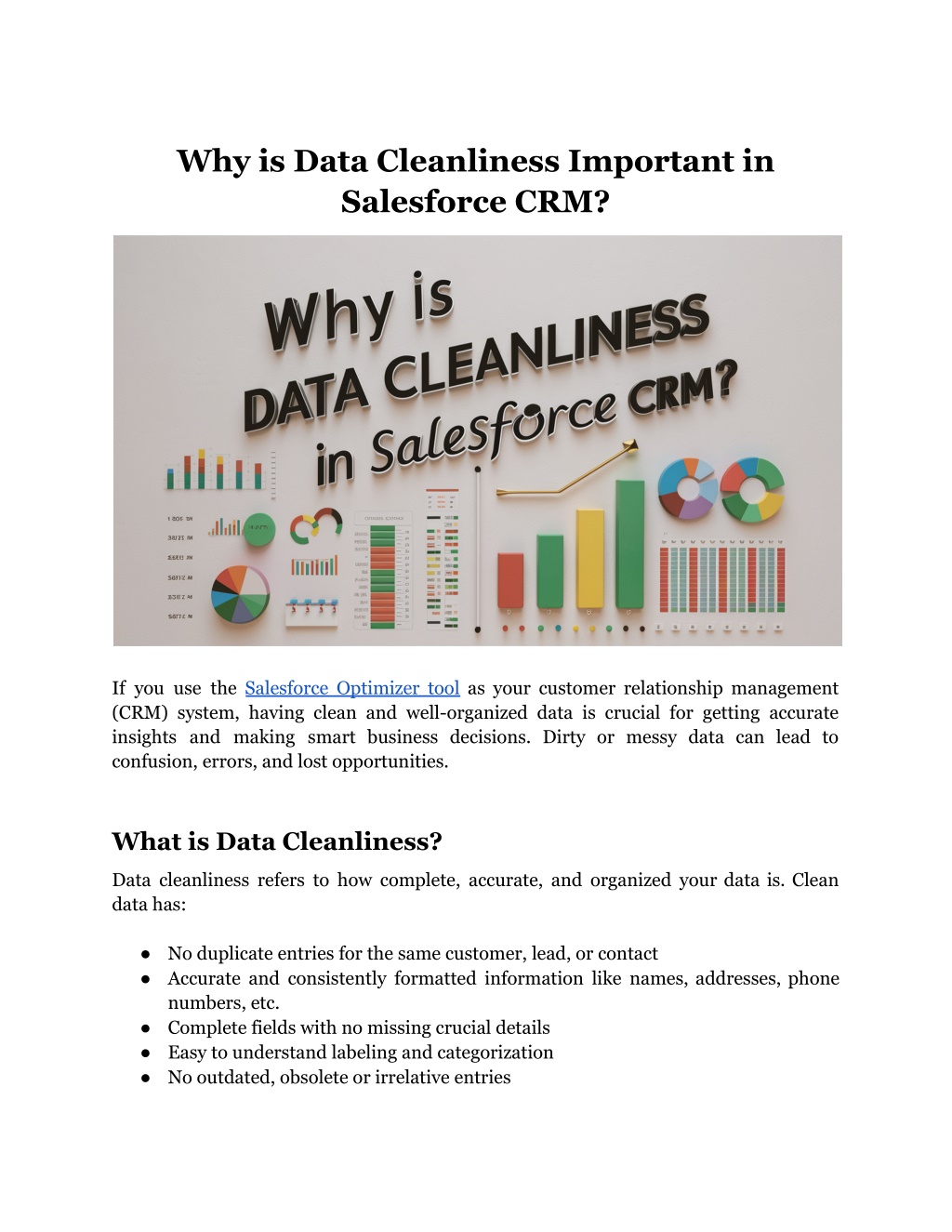
Why is Data Cleanliness Important in Salesforce CRM?
Unleash the power of your CRM! Clean Salesforce data means better reports, smarter decisions, and happier customers. Learn why data hygiene matters.
Download Presentation
Please find below an Image/Link to download the presentation.
The content on the website is provided AS IS for your information and personal use only. It may not be sold, licensed, or shared on other websites without obtaining consent from the author. Download presentation by click this link. If you encounter any issues during the download, it is possible that the publisher has removed the file from their server.
Presentation Transcript
Why is Data Cleanliness Important in Salesforce CRM? If you use the Salesforce Optimizer tool as your customer relationship management (CRM) system, having clean and well-organized data is crucial for getting accurate insights and making smart business decisions. Dirty or messy data can lead to confusion, errors, and lost opportunities. What is Data Cleanliness? Data cleanliness refers to how complete, accurate, and organized your data is. Clean data has: No duplicate entries for the same customer, lead, or contact Accurate and consistently formatted information like names, addresses, phone numbers, etc. Complete fields with no missing crucial details Easy to understand labeling and categorization No outdated, obsolete or irrelative entries
Messy, dirty data on the other hand is plagued by issues like: Duplicate records for the same entities Incomplete, inaccurate or outdated information Inconsistent formatting (e.g. "Street" vs "St" or "Co." vs "Company") Improper use of fields (e.g. putting a company name in the contact name field) Lack of standards in abbreviations, capitalization, etc. Read More Articles: What Is Proxy Card Access? Why is Clean Data So Important for Salesforce? Here is what you need to know: 1. Better Customer Service One of the main uses of a CRM system like Salesforce is to track all your interactions and information about customers and prospects. Your sales and service teams always have the right details about every contact with clean data. Dirty data leads to confusion about who the customer is, what they've purchased, their service history, and their outstanding issues. This results in a poor customer experience. 2. More Accurate Reporting and Analytics Salesforce's reporting and dashboard capabilities allow you to analyze your sales performance, understand your customers better, and make smart decisions. However, these insights are only as good as the data they are based on. If your data is full of duplicates, errors, and inconsistencies, any reporting will be inaccurate and misleading. You won't be able to trust the numbers or see the full picture. 3. Higher Sales Team Productivity Your salespeople rely on Salesforce data to know who to contact, what to pitch them, and how to best serve their accounts. If the data is unreliable, they will waste time chasing bad leads, calling the wrong numbers, or missing important details about a customer's needs.
This lowers sales productivity and efficiency. It also increases frustration as reps lose trust in the data they have to work with. 4. Better Data Compliance There are various regulations around data privacy, consent, and record-keeping that businesses must follow. Examples are: GDPR CCPA HIPAA Having non-compliant customer data filled with errors can expose your organization to risks, penalties, and lawsuits. Clean data practices are essential for ensuring you remain compliant. 5. Lower Operational Costs It takes a lot of time and effort to manually fix mistakes, merge duplicates, and sanitize data in a CRM system. Over time, dirty data increases your operational costs in man-hours wasted on these tasks. Additionally, basing your process decisions on flawed data can lead to costly mistakes in production, inventory management, marketing spending, and more. 6. Easier Data Migration and Integration If you ever need to switch CRM systems, integrate Salesforce with another application, or import/export large datasets, having clean data will make the process much smoother. Duplicate records, formatting inconsistencies, and other data quality issues can cause major headaches during migrations and integrations. Good data hygiene prevents these problems. Read More Articles: How Small Businesses in Toronto Can Benefit from IT Support?
How to Keep Your Salesforce Data Clean? Maintaining clean, high-quality data is an ongoing process that requires buy-in and effort from everyone who uses the system. Here are some best practices: 1. Use Data Validation Rules Salesforce allows you to set up validation rules that enforce data quality standards. For example, you can: Make fields required or read-only Specify valid data formats (e.g. forcing phone numbers to follow) Run error checks on field values Create cross-object validations between related records 2. Deduplicate Regularly Even with validation rules, duplicates can get into your data over time from import errors, manual entry mistakes, or changing data (like when someone gets a new email). Deduplicate all your key objects like Leads, Contacts, and Accounts on a regular schedule. Use the merging tools to combine the correct versions and delete duplicates. 3. Keep Up With Data Decay Customer data like phone numbers, emails, and addresses is constantly changing as people move, switch providers, or change jobs. Implement processes to continually verify, update, and enrich your records to prevent this data decay. Options include manual checks, using third-party data enrichment services, and setting field re-validation schedules. 4. Provide Data Entry Training One of the biggest sources of dirty data is simply users entering information inconsistently or into the wrong fields. Train everyone on: Standard field mappings and what data goes where Proper formatting conventions What details and levels of specificity are required
5. Use Accountable Picklists Picklists (drop-down value lists) are a great way to maintain consistency when categorizing things like lead sources or case reasons. However, they can get bloated over time. Therefore, do annual picklist audits to remove unused values, clarify misleading options, and norm capitalization/spelling. Having an "owner" accountable for each picklist helps keep them clean. 6. Set Roles and Permissions In a collaborative system like Salesforce, it's important to control who can create, edit, and delete records. Therefore, create clear roles and record-level permissions to: Prevent unauthorized data changes Allow edits only by accountable owners Restrict modifications of complete, qualified data 7. Audit the Org Periodically In addition to regular hygiene tasks, do periodic full-scale data quality audits and remediation projects. This gives you a chance to: Find and resolve systemic data quality issues Enhance processes, validation rules, and training Do a thorough cleansing of all objects and records 8. Automate Where Possible While Salesforce provides many tools for manual data cleansing, the work can quickly become tedious and time-consuming at scale. Leverage automation tools to: Bulk scan for duplicates, format errors, and other issues Automatically merge, convert data formats, and migrate records Set up backstop data cleansing processes on import
Conclusion Keeping your data organized, complete, and accurate provides a strong foundation for your Salesforce implementation and business processes. While it takes diligence and effort, the benefits of clean data make it incredibly worthwhile. WhiteRock created a new CRM system for our clients that is easy to use and tailored to their specific needs. We provided training and support to ensure a smooth transition to Salesforce Lightning. Our optimizer app Salesforce solutions and Salesforce optimizer tools helped make the switch seamless and efficient. Trust WhiteRock for all your CRM customization and optimization needs! Site Article: Why is Data Cleanliness Important in Salesforce CRM?




